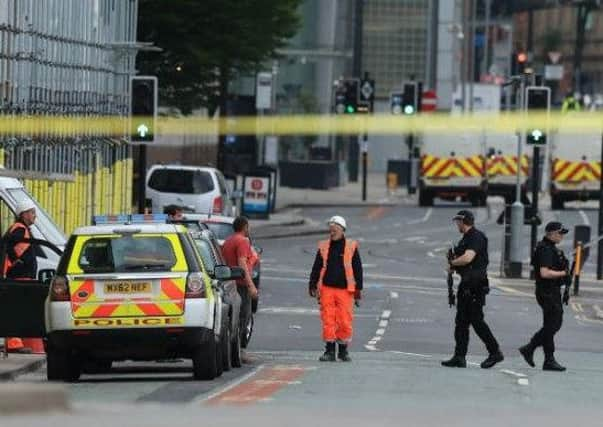Manchester arena attack: How to talk to your children about terrorism


At least 22 people were killed at the Ariana Grande concert, a popular US singer with many young fans. It occurred just two months after the terror attack in Westminster.
Children may have many questions about the event or feel upset or scared. Our sister title, the i paper, spoke to Sacha Richardson, the Director of Family Services at the charity Winston’s Wish, about how parents and caregivers should discuss the attack with young and older children to reassure and make them feel safe.
Don’t ignore it
Advertisement
Hide AdAdvertisement
Hide Ad“It’s really important that parents and caregivers are able to talk about and acknowledge what is happening because, with an event like this, they will be hearing about it,” says Mr Richardson.
Take the lead
It is helpful for parents to take the lead and bring up the subject if the children have not, he adds. “It is important to just say it is really sad and upsetting that this has happened, and lots of people are naturally upset – and that’s why people are talking about it.”
Be truthful – it is shocking. But this can offer reassurance too
“One of the things parents might say to children is that something like this is sad and shocking, which is why it is in the news, but it is also in the news because it is so rare. It is a very, very unusual event. It is usually because they are so rare that events like this make the news.”
People do bad things as opposed to there being bad people
“One of the things that can be useful to talk about is that people do bad things as opposed to there being bad people.”
This is an important point to address because children will find the concept of there being ‘bad people’ more frightening, Mr Richardson explains.
“It’s important to realise that people are not thinking in a clear and normal way and sometimes that’s why they do very bad things. With older children, you might get into discussions about good and evil and all sorts of things but certainly, with younger children, be reassuring.”
Acknowledge what we do not know
In an attack where there are still so many unanswered questions and people missing, parents should acknowledge that we do not know everything.
Advertisement
Hide AdAdvertisement
Hide Ad“It’s quite OK to say you don’t know the answers to things, or that we don’t know yet.
“But what is also useful to say is that we know the police and the emergency services are doing everything they possibly can and they will be helping everyone they can and making sure they find anybody who was involved in carrying out the attack.
“Even saying that the person who carried out the attack has died in it may be in a way reassuring to them.”
Talk to older children about what they have seen online
This is particularly key in an attack where there is so much speculation and unverified or false claims circulating.
“I think with older children and teenagers it’s really valuable to have a conversation to try and understand what they have heard and seen,” says Mr Richardson. “Some of it may not be correct.
“Also, they may not have the experience to put what they have seen [on the internet] into context. Just like with younger children, it is helpful for parents to take the lead. With older children, it may start by asking what they have heard, what they think and so on and exploring that with them, and helping them to understand that a lot of things are speculation and, unfortunately, people even make things up.”
For parents of children directly affected by the attack, such as those whose friends were injured in it:
“Where it is possible to be reassuring, do so. If someone has been injured, parents need to explain that the doctors will be doing everything they can to make them better and we will find out how they are as soon as possible.”
Advertisement
Hide AdAdvertisement
Hide AdYou have to acknowledge if people, particularly children, have died, Mr Richardson adds.
“It’s important not to avoid the painful truth sometimes because that will only cause later upsets and confusion among children.”
Be honest – not just in what you say but how you say it
“I think one of the other things to say in general is that it’s not just the words you say, it’s about how you say them. They will pick up on your feelings and it’s important not to pretend you are feeling different to how you are. If you can be calm in what you are saying then that will also be reassuring. You can be calm and sad, for example.
“You have to be truthful, open and honest and as reassuring as possible [by saying] yes, this awful tragic thing has happened, people have been killed and hurt and that is terrible, but it is also a rare event, and very unlikely to happen to anyone.”
The NSPCC’s advice:
• Listen carefully to a child’s fears and worries.
• Offer reassurance and comfort and avoid complicated and worrying explanations that could leave them more frightened and confused.
• Help children find advice and support to understand distressing events and feelings. Children can contact Childline confidentially, for free, 24 hours a day on 0800 1111.